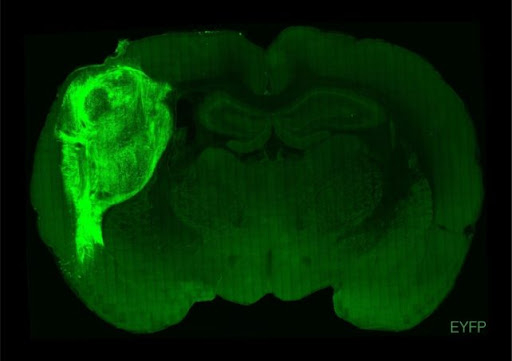Your brain on video games

Image: Duane Hoffmann / MSNBC.com
Children who play video games for 3+ hours/day have better memory and more control over their motor skills than kids who don't play video games at all, per a new study published yesterday in the peer-reviewed journal JAMA Network Open. But before you go running to mom with the good news, make sure to read on – one thing isn't necessarily indicative of the other.
🧠 A deeper dive… Researchers from the University of Vermont used data from the ongoing Adolescent Brain Cognitive Development (ABCD) study, which is tracking brain development across thousands of US children via regular brain imaging, mental health screenings, physical health exams, and more.
- The ABCD study had previously asked 2,200+ children aged nine or ten how many hours of video games they play each week.
- The Vermont scientists used that data to divide the kids into frequent gamers (21+ hours per week) and non-gamers (0 hours per week), then compared the two categories.
🎮 The results… indicated children in the ‘frequent gamer’ category were faster and more accurate than non-gamers on cognitive tests measuring impulse control and working memory.
- The Vermont study also discovered a difference in brain activity between the two categories. Frequent gamers’ brains showed more activity in regions associated with cognitively demanding tasks, and less activity in regions related to vision.
✋ Yes, but: The study didn’t result in the establishment of a causal link. Its authors ultimately said they couldn’t tell whether video games caused superior brain performance; it could just be that kids who are already good at cognitive tasks naturally tend to play lots of video games (or any other possible explanation).
+Worth mentioning: The Vermont study found no differences on measures of mental health between frequent gamers and non-gamers.
Share this!
Recent Science & Emerging Tech stories

Science & Emerging Tech
| October 20, 2022Portrait of a Neanderthal family
👨👩👦👦🧬 Neanderthals likely formed small, tight-knit communities where women traveled between groups to live with their mates, while men stayed within the group they were born for life, per a new study published in Nature.

Science & Emerging Tech
| October 14, 2022Beam me down, Scotty
☀️🛰️🌎 In a live demonstration in front of the European Space Agency and Airbus, New Zealand-based startup Emrod recently demonstrated new tech that can be used to beam down solar energy from space.

Science & Emerging Tech
� | October 13, 2022This probably isn’t the mind control you’re thinking of
🐀🧠 After neuroscientists at Stanford University transplanted specialized human brain cells into newborn rats, the human cells integrated with the rat tissue and continued to mature, per a new study published in Nature.
You've made it this far...
Let's make our relationship official, no 💍 or elaborate proposal required. Learn and stay entertained, for free.👇
All of our news is 100% free and you can unsubscribe anytime; the quiz takes ~10 seconds to complete